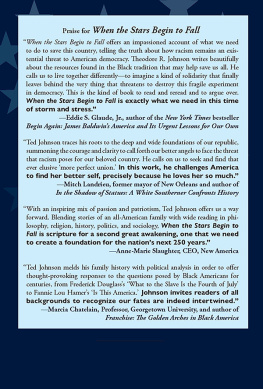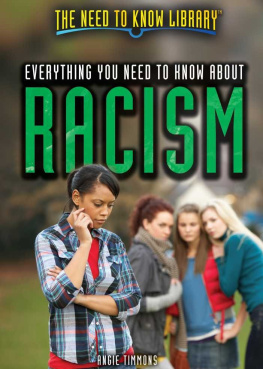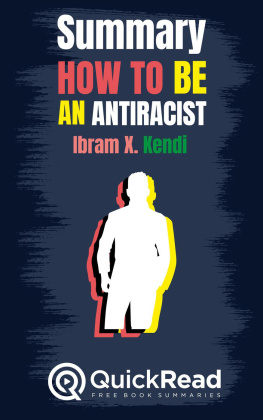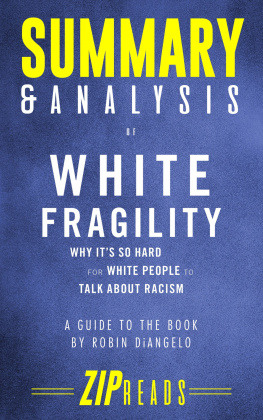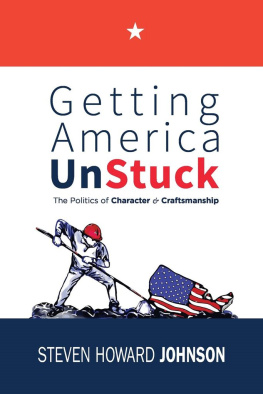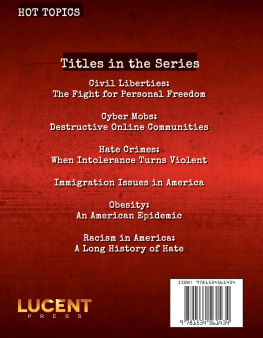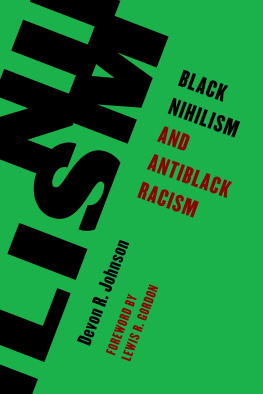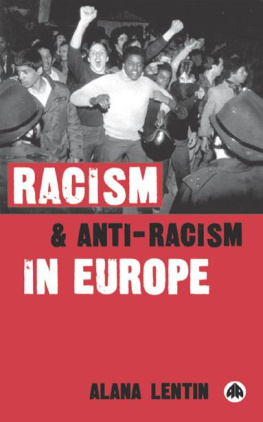When the Stars Begin to Fall
When the Stars Begin to Fall
Overcoming Racism and Renewing the Promise of America
Theodore R. Johnson

Atlantic Monthly Press
New York
Copyright 2021 by Theodore R. Johnson
All rights reserved. No part of this book may be reproduced in any form or by any electronic or mechanical means, including information storage and retrieval systems, without permission in writing from the publisher, except by a reviewer, who may quote brief passages in a review. Scanning, uploading, and electronic distribution of this book or the facilitation of such without the permission of the publisher is prohibited. Please purchase only authorized electronic editions, and do not participate in or encourage electronic piracy of copyrighted materials. Your support of the authors rights is appreciated. Any member of educational institutions wishing to photocopy part or all of the work for classroom use, or anthology, should send inquiries to Grove Atlantic, 154 West 14th Street, New York, NY 10011, or .
Let America Be America Again from The Collected Poems of Langston Hughes by Langston Hughes, edited by Arnold Rampersad with David Roessel, Associate Editor, copyright 1994 by the Estate of Langston Hughes. Used by permission of Alfred A. Knopf, an imprint of the Knopf Doubleday Publishing Group, a division of Penguin Random House LLC. All rights reserved.
Jacket design by Alison Forner
Jacket photograph Estate of James Karales, courtesy of Howard Greenberg Gallery, New York
Published simultaneously in Canada
Printed in Canada
First Grove Atlantic hardcover edition: June 2021
This book was designed by Norman E. Tuttle of Alpha Design & Composition.
This book was set in 12-pt. Adobe Caslon Pro by Alpha Design & Composition of Pittsfield, NH.
Library of Congress Cataloging-in-Publication data is available for this title.
ISBN 978-0-8021-5785-0
eISBN 978-0-8021-5787-4
Atlantic Monthly Press
an imprint of Grove Atlantic
154 West 14th Street
New York, NY 10011
Distributed by Publishers Group West
groveatlantic.com
CONTENTS
: Race and Solidarity in the United States
The Challenge for America
The Primary Threat to America
The Veiled Threats Exposed
AMERICAN, BUT BLACK: LESSONS FOR NATIONAL SOLIDARITY
Superlative Citizenship
Inclusion Trickles Down
Black Solidarity
A FRAMEWORK FOR NATIONAL SOLIDARITY
Finding Civil Religion
Racism Is a Crime of the State
Solidarity Is Not Colorblind
A PATH TOWARD NATIONAL SOLIDARITY
National Solidarity as the Right Response to Racism
Creating National Solidarity
Race and Solidarity in the United States
I was twelve years old the first time someone called me a nigger.
It happened one autumn morning as I and my friendsfour white boys and Marcus, a black kid who had just moved to an adjoining neighborhoodtrekked through our predominantly white suburban community nestled in the Piedmont plains of North Carolina. We walked the same route to school every morning past colonial homes with brick facades, plush green manicured lawns tucked between sidewalks and country porches, and small house dogs bravely yipping from bay windows. A small, nasally voice hurled the slur from behind a hedge of evergreen bushes as we crossed the trodden-grass clearing adjacent to our school. I immediately knew it was Cameron.
The air around eleven-year-old Cameron was spoiled and self-obsessed, a characteristic that felt uncommon among the children in our subdivision. His signature tic was flipping his blond-frosted skater bangs over a head of brown haira peacock gesture that added some heft to his slight build. Sometimes his hotheaded ways caused him to spit fire that would eventually consume him in the backdraft. This was such a moment. The songs of the morning birds were interrupted as the n-word landed like a grenade in the middle of our unit. It had barely settled into the dirt beneath us when its heat singed the air between us. All black people are niggers! The last syllable bounced around the trees behind us until it was rushed away by the breeze.
The unblinking eyes of my white friends all fell on me, their mouths agape. These were guys with whom Id camped out, played basketball, traded baseball cards, and talked with endlessly about girls and professional wrestling. But they were not angry. They were not offended. They did not rush to my defense or to reassure me, as friends often do as a display of solidarity in moments like this. The only thing they had for me were slack-jawed expressions dotted with darting eyes that seemed to ask, Whats our black friend Teddy gonna do? Standing there in my frail, prepubescent body, attempting to shoulder this new burden, I felt isolated and smothered, as if no one around could hear my muffled struggling. It was the first time I saddled the silent weight of being black in America.
Then, in a flash of relief and with an oddly timed sense of joy, I remembered that I was not alone. The new kid! Marcus! In a single heartbeat, I turned to find him already moving toward Camerons hiding place in the hedges with choppy strides that quickly extended into a sprint. My instincts took over, and I launched with him. For some reason, it suddenly felt important to me that the two black people within earshot acted together, in solidarity. Even though Marcus and I were only newly acquainted, in the face of racial hatred we found common cause and unified action. Running with himmy heart racing and my breath short and shallow between long stridesI still remember feeling strong... vibrant... affirmed.
Thirty years later, on a crisp October morning in 2017, I slide into a beige-and-burnt-orange subway seat, rattling along the blue path of Washington, D.C.s color-coded Metro line, deep in thought. If twelve-year-old Teddy stepped into that train and eyed this older version of himself, he would have sneaked a steady stream of glances in search of something that felt familiar, trying to decide if he liked the man he had become. He would have recognized the puffs of skin around the eyes that his mothers family passed down like recipes and old wives tales; the prominent nose from his fathers lineage, born in a place where haints lurk in the crossings of darkened country fields; and his pigeon-toed mien that made his feet look as if they were continuously leaning in to whisper to each other, whether seated or in motion. He would have noted the gold on the left hand and smiled to know that he would one day have a girl and find love. He never would have predicted the titles Commander and Doctor now preceding his last name, the receding hairline where there were once waves he brushed into uncooperative hair laden with pink lotion and pomade, or that he had traveled the world in suits and uniforms, from Johannesburg to Japan, war zones to the White House. He definitely would have sensed the same melancholic insecurity that often grasps his adult pinky finger and tags along on all his lifes pursuits, little and large. And he would have noted that the burden he felt that one morning with Marcus and Cameron had doubled and transformedthe weight of race had evolved into a responsibility to America and to the dignity of its black citizens. Had I caught his glance, perhaps I would have smiled, or simply just looked away. I was distracted. I had a speech to give.
There on the subway, I closed my eyes and mouthed the words of an address about the fate of our country. Five decades of alumni from the prestigious White House Fellowship program had gathered for the annual leadership conference in the U.S. Chamber of Commerces august Hall of Flags, and I was one of the many speakers lined up to offer some thoughts on the state of our Union. Ben Carson, previously a Republican presidential candidate and secretary of the U.S. Department of Housing and Urban Development, began the morning by assuring us that the nation was on the right track. Later, H.R. McMaster, then President Donald Trumps national security advisor and a three-star Army general, took to the podium and sought to give us all confidence that the nation was safe. Others ascended the stage and opined on the evolving nature of media and the impact of globalization on international economies. And then, when it was my turn, I looked the audience in the eye and told them America was in danger.

